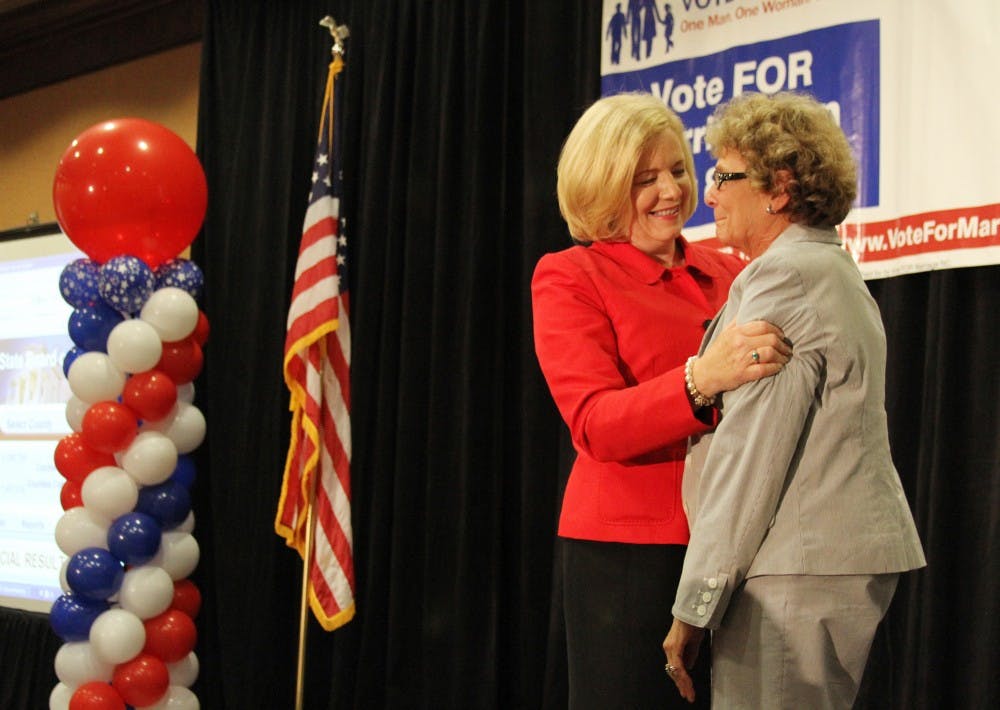After North Carolinians voted to amend the state constitution to define marriage between a man and a woman as the only union recognized by the state, there continues to be widespread disagreement over the effects the amendment might have on state businesses and families.
Many experts and opponents of Amendment One have expressed concerns that the amendment creates uncertainty for unmarried couples, since state courts have not yet ruled on how to apply the amendment to existing laws.
Potential court interpretation could range from business regulation in the state to laws concerning the finances of adoption, domestic violence and custody arrangements of unmarried couples — both same-sex and opposite-sex — said Maxine Eichner, law professor at the UNC School of Law.
Boone Turchi, an economics professor at UNC, said many large corporations are looking for a diverse workforce, and many highly-educated workers are looking for a diverse environment to work in.
Turchi said it is very likely that businesses may view this amendment as an obstacle to the creation of such an environment. He said this might lead highly-educated workers and some corporations to choose other states for their business.
“A passage of an amendment like this could have a significant impact on jobs in the state and on companies that would choose to relocate to North Carolina,” said Ryan Butler, president of LGBT Democrats of North Carolina.
Turchi said private businesses will likely be able to continue offering benefits to same-sex couples, but there is less certainty surrounding whether public institutions will be able to do the same.
Many public institutions have sought legal advice to evaluate the impact of the amendment on their policies.
Joni Worthington, spokeswoman for the UNC system, said the system’s attorney is looking at the possible implications of the amendment on UNC policies.



